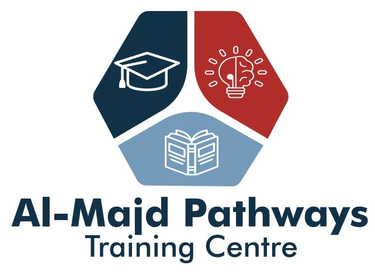
Mastering Business Etiquette & Protocol
£5250.00£4800.00
INTRODUCTION
Did you know that approximately 85% of job success hinges on "soft skills," while only 15% is based on technical knowledge? Whether you're engaging in boardroom meetings, online interactions, or international ventures, effective soft skills play the most significant role in building successful relationships.
This dynamic training course offers a myriad of benefits, including making a lasting first impression, creating a substantial impact, and achieving your objectives. Throughout the Mastering Business Etiquette & Protocol training course, participants will acquire practical knowledge and advanced skills to prepare for crucial interactions with colleagues.
Presented by Al-Majd Pathways Centre (APC), this training course delves into the concept of business etiquette and appropriate etiquette practices across various business, work, and social contexts. Participants will learn the essential etiquette guidelines for diverse scenarios, including meetings, entertainment, telephone conversations, and online interactions. Additionally, the training addresses etiquette challenges when conducting business in multicultural settings.
Participants in this training course will develop the following competencies:
• Social etiquette, manners, and business protocol
• Professional conduct required for formal events
• Professional networking etiquette and the art of effective conversation
• Key principles of international etiquette, manners, and behaviour
• Communication etiquette, including the unspoken rules of telephone and written communication
• Advanced business etiquette and ethics
• Dealing with VIPs, suppliers, negotiation, and challenging situations
TRAINING OBJECTIVES
Upon completing this training course, participants will:
• Gain advanced skills for excelling in social, business, and international scenarios
• Learn the principles of international business protocol and professional etiquette
• Comprehend the correct behaviour in various business and social situations, including formal dinners, networking events, online webinars, and social media interactions
• Learn how to establish effective communication with individuals from different countries and levels of management • Exhibit appropriate personal and professional conduct, adhering to both social and business norms
• Apply proper communication and professional etiquette consistently across different levels and at all times
• Implement various variations of protocol and professional etiquette from diverse cultures, nations, and regions
• Plan VIP visits and formal occasions while serving as the ideal host
• Comprehend international and local variations in Business Etiquette & Protocol
• Apply the foundations of protocol for meetings and official receptions
• Acquire new communication and multicultural skills – whether by telephone, online, email, or face-to-face interactions
WHO SHOULD ATTEND?
The Mastering Business Etiquette & Protocol training course is highly recommended for individuals in the following roles:
• Business leaders, senior executives, and those engaged in international affairs
• Departmental supervisors, internal consultants, and human resources personnel
• Project managers, technical professionals, and engineers
TRAINING APPROACH
Al-Majd Pathways Centre (APC)'s Mastering Business Etiquette & Protocol training course is designed to be interactive and participatory. The training employs various tools to enable participants to function effectively and efficiently in challenging, international, and multifunctional environments.
The training course is built upon four learning pillars:
Concept learning (lectures and presentations)
Role-playing (group exercises)
Experience sharing (roundtable discussions)
Exposure to real-world problems and policy choices confronting delegates
The training incorporates high-quality video and visual presentations, flip charts, syndicate exercises, and peer review sessions to encourage full participation and an enjoyable learning experience.
TRAINING OUTLINE
Day 1: Introduction to Social Etiquette, Everyday Manners, and Business Protocol
• The significance of etiquette and its relevance
• Self-assessment of etiquette knowledge
• Understanding etiquette: societal behavioural conventions and expected conduct norms
• Everyday manners, courtesy, common mistakes, and impolite behaviour
• Optimal behaviours for participating in business meetings
• Ten principles of office etiquette and workplace protocols
• Guidelines for planning and chairing meetings, events, and seminars
Pre-meeting preparations
Day-of-meeting procedures
Meeting chair responsibilities
Post-meeting follow-up and action items
Internet usage etiquette in the workplace (Netiquette)
Day 2: Formal Events and Professional Conduct
• Etiquette, rules, and behaviour norms for formal occasions and interactions
• Etiquette, rules, and protocol for formal dinners and events
• Engaging with VIPs and guests, and hosting business events
• Professional networking etiquette and the art of effective communication in business conferences, external meetings, and events
• Essential table etiquette for business meals, both basic and advanced:
Basics of Table Etiquette
Proper Utensil Handling & Placement
Business Dining Etiquette
Cross-Cultural Highlights
Specific Food Etiquette Guidelines
Day 3: International Etiquette - Northern Cultures
• International etiquette skills assessment – Part 1
• Understanding and interacting professionally with North Americans
• Recognising cultural differences and etiquette norms when dealing with Europeans
• Working effectively with British colleagues, contacts, and suppliers
• Understanding the cultural nuances of Scandinavia, including Sweden and Denmark
• The Russian approach: How to collaborate with colleagues from the Soviet Union and neighboring regions
Day 4: International Etiquette – Southern and Eastern Cultures
• International etiquette skills assessment – Part 2
• Understanding and interacting professionally with Indian counterparts
• Understanding the cultural and legal disparities and etiquette norms when doing business in China
• Working effectively with African colleagues, contacts, and suppliers
• Cultural considerations for Japan and other Asian countries, including Korea and the Philippines
• Etiquette norms in Brazil and South American cultures
Day 5: Communication Etiquette and Work Ethics
• Etiquette guidelines for receptionists, security personnel, and service staff
• Making introductions, greeting individuals, offering handshakes, and adhering to other etiquette protocols
• Managing challenging people and situations while delivering polite refusals
• Effective telephone communication and telephone etiquette best practices
• Politeness in written communication and email etiquette
• Handling customer service and supplier communication etiquette, as well as common protocol norms
• The role of ethics in the workplace and its challenges
• Embracing diversity, inclusion, and equality
• Action planning for implementing learned skills
Format: Onsite
Duration: One Week
Language: English
Certificate of Completion: Upon successful completion of the course, participants will receive a Certificate of Completion from Al-Majd Pathways Centre (APC).
Get in touch with us today.
Follow
Sign-up for our newsletter
0044 7466410010
©2025 All rights reserved.
